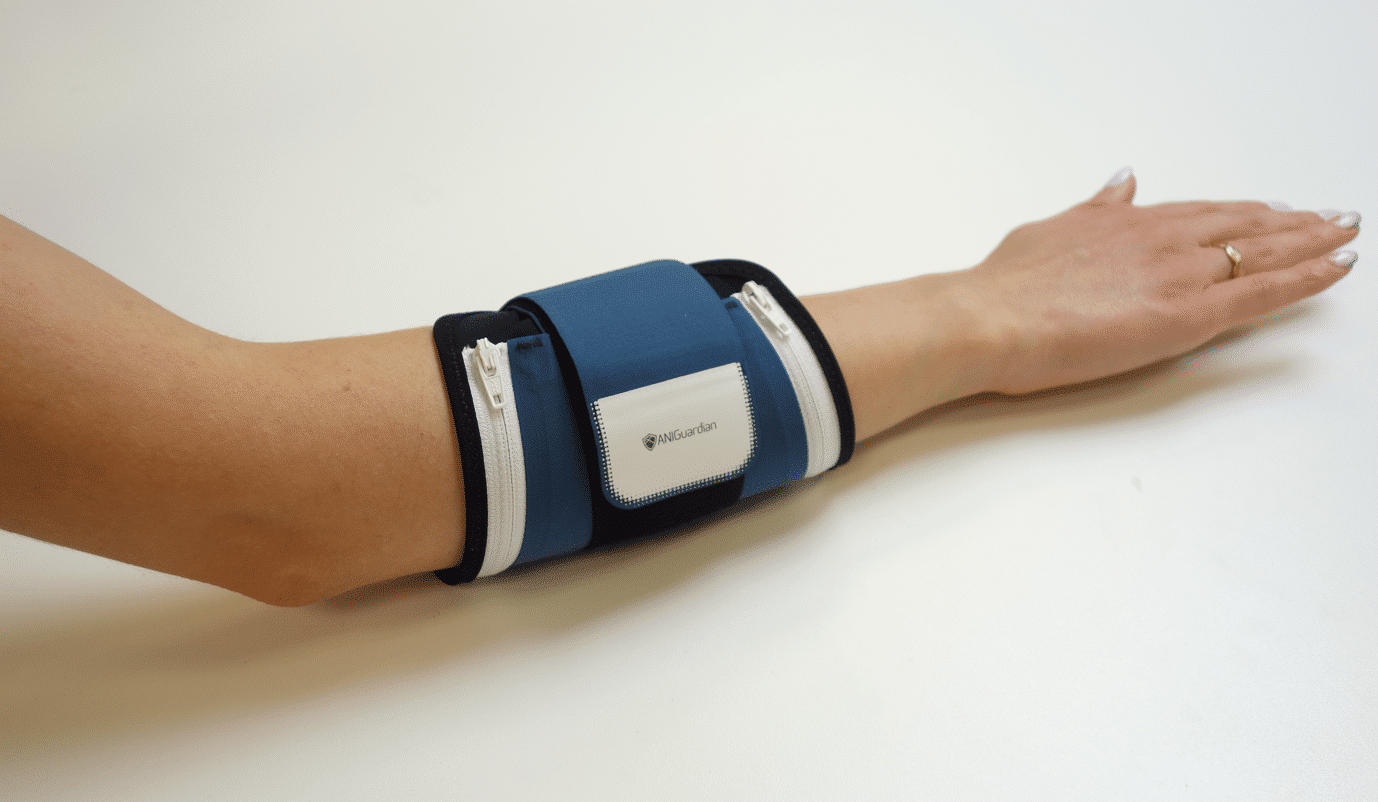Mdoloris, the specialist in pain assessment, is currently looking into a sensitive issue, for both medical personnel and the patients’ families, namely knowing whether or not the patient is suffering.
ANI Guardian is worn on the forearm. It operates wirelessly and is connected to a smartphone application. This bracelet is therefore easier to use and more ergonomic than the pain monitors currently available on the market, that work with electrodes. It is suitable for patients in palliative medicine departments, those with multiple disabilities, and people with autism or suffering from neurodegenerative diseases such as Alzheimer’s.
“ANI Guardian efficiently measures the level of comfort in situations when the patients themselves are incapable of providing feedback. This is truly extraordinary! It provides reliable visibility over time, which can be used to improve or maintain the level of comfort,” Fabien Pagniez, CEO of MDoloris Medical Systems.
This new technology benefits from the research carried out over the last 23 years by Mdoloris and the Inserm laboratory (Center for Clinical Investigation and Technological Innovation) of the Lille CHRU (Regional University Hospital Center), in the north of France.
The company has access to the only technology in the world capable of carrying out non-invasive measurements of the reptilian brain in real-time. The ANI (Analgesia Nociception Index) was up until now indicated during general anesthesia or in reanimation for patients in an artificially induced sleep state. “Intensive care physician anesthetists are thus able to understand the degree of suffering experienced by the patient, and can therefore deliver the appropriate amount of painkillers,” said Fabien Pagniez, CEO of MDoloris Medical Systems.
But each organism is different and undergoes changes. There are, for example, moments of greater or lesser pain during a surgical operation. And painkillers vary in their time of onset. “Without this efficient measuring system over time, it is impossible to know with any precision the amount that is appropriate for each person,” the CEO said.
This tool ensures that patients are stabler, they wake up sooner, do not feel any pain and it also avoids all risks linked to overdosing (respiratory depressions, bradycardia, metastases for cancer patients…). On average, the length of stay of the patient in the hospital is reduced by 11%.
This new product was created in partnership with French company PPRS. PPRS manufactures the bracelet and Mdoloris recovers the physiological signal and subjects it to a dedicated algorithm.
This technology will be accessible to everybody, including private individuals, by summer 2023, after it has undergone tests carried out by the most prestigious universities in the world and after having been validated by scientific publications.
Mdoloris was established 12 years ago and today has operations in 78 countries. Over 4,000 of its monitors are marketed in situ and 450,000 patients have benefited from the products it offers, including 30% of new-born babies. The company has invested €24 million to establish its technology as the worldwide reference, a technology that has been validated by over 220 international publications.



